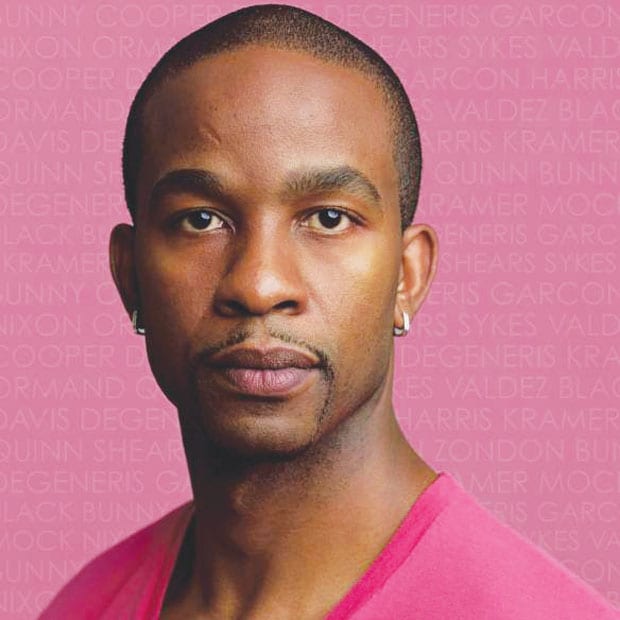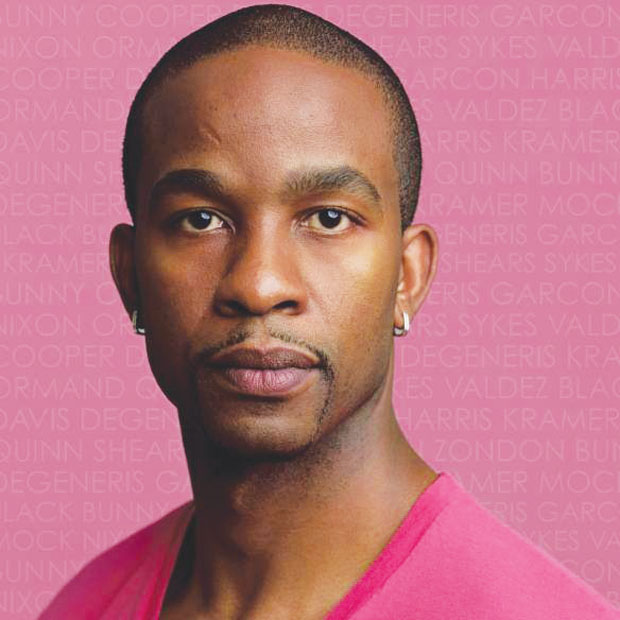Gay athletes show queer youth they can be out, proud — and participate in sports
It was big news in April when Jason Collins came out as the first openly gay athlete still active in a major American professional sports league. There were fewer headlines last month, when Collins participated in a four-day sports and leadership camp in Chicago.
But for the 40-plus young people ages 14 to 28 who participated, it could be a life-changing event.
The National Basketball Association center joined a number of other athletes (including his twin brother Jarron) at the first-ever You Belong Sports & Leadership Camp. Like the Collinses, there was a twin focus. One was on helping LGBTQ youth tap their leadership potential. The other was on showing them that their sexual orientation is no barrier to participating in sports.
The weekend was the brainchild of Wade Davis and his business partner Darnell Moore.
Davis — who came out after his professional football career ended — is a co-founder of the You Belong Initiative. He remembers fondly the football camps of his youth. But he also knows that many queer youth do not feel comfortable in athletic environments.
The four-day event was organized in partnership with numerous LGBT organizations, including the National Center for Lesbian Rights, Go! Athletes, Outsports and GLSEN.
But a key moment came when the NBA signed on. Suddenly, the big boys were involved. The very big boys — like 7-foot-1 Bill Cartwright.
A 16-year NBA veteran, Cartwright helped the Chicago Bulls win three straight championships and later coached the Bulls. He was just one of many speakers delivering powerful messages at the Sports & Leadership Camp. Describing how he went through life feeling “different” because of his height, he told the young men and women that everyone feels different for some reason. The key, Cartwright said, is to find support from people who “look at us for who we are.”
Support was everywhere at the camp, held at a Chicago LGBT community center. Speakers included Anna Aagenes, founder of Go! Athletes; trans athlete Kye Allums (who played basketball at George Washington University); WNBA vet Angelal Smith; trans MMA fighter Fallon Fox; and former NFL lineman Marques Sullivan. But the Collins brothers’ attendance was key, according to Davis.
“We wanted the young people to see themselves through him. But having his straight brother there sent an important message, too.”
The NBA’s Donnie Arey served as lead clinician, running drills and skill-building sessions. On the final day, they divided into two teams. Jason Collins and ESPN commentator LZ Granderson coached one squad; Allums and Jarron Collins the other. They played a game, had a free-throw contest and ended with a dance.
Some attendees were not so interested in the sports component. They came for the workshops, on subjects like youth leadership, civic engagement, social justice and health and wellness. Others were thrilled at the opportunity to spend time with accomplished athletes.
The chance for LGBT young people to interact with them made a profound impression — and not just on the youth. “Every pro leaned in,” Davis says. “They all spent time with everyone, beyond the basketball court.”
When the camp ended, Davis says, all the participants had learned an important lesson. “Every person there is reimagining what an ‘athlete’ is. Some of these young people are homeless or marginally housed. Some of them can’t afford to play sports or have no access to it. But they’re interested, they enjoy playing and they take some very important things away from participating and competing.”
Other lessons were more personal, especially for former Rutgers University men’s basketball coach Mike Rice, who was in Chicago for a GLSEN Sports Project training session for coaches held in conjunction with the camp. Rice earned notoriety — not the good kind — earlier this year, when a video, showing him hurling basketballs and anti-gay epithets at his players, went viral. GLSEN has worked with Rice since his dismissal from Rutgers. His open engagement with the LGBT participants was part of his educational process.
The four days flew by. When it was over, and the requisite Facebook friending was complete, the LGBT youth asked two questions: “When are you coming back?” And “What’s the next sport?”
The next event is set for this winter, in Newark. Rutgers — Rice’s former employer — will be closely involved. And so will the pros, who left Chicago feeling exhilarated and ready to do more: Davis says that everyone asked to be invited back for the next LGBT sports camp.
— Dan Woog
This article appeared in the Dallas Voice print edition September 27, 2013.

















